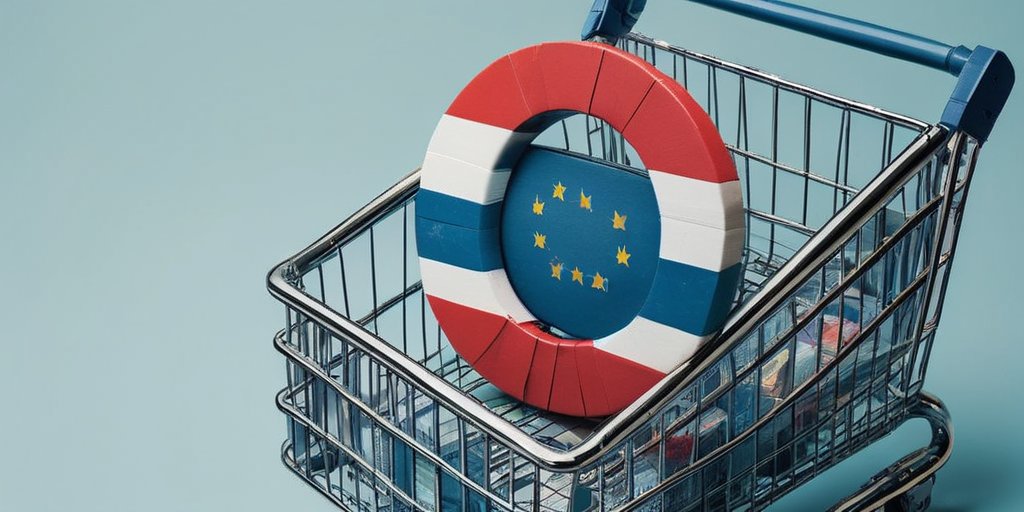In a surprising reaction to the election of President Donald Trump for a second term, a group of Europeans, led by individuals like Moya O’Sullivan from Kilkenny, Ireland, are taking a stand against American goods. O’Sullivan’s decision to eliminate Philadelphia cream cheese, Oreos, Jack Daniel’s whiskey, and Listerine from her shopping list isn’t just a personal dietary choice; it’s a grassroots protest aimed at the 77 million Americans who supported Trump’s return to power. “I’m not buying Philadelphia cheese anymore,” she declares, embodying the sentiments of a growing economic nationalism brewing across the continent.
The backdrop to this boycott is Trump’s trade war with the European Union. Starting April 2, a new wave of tariffs on a plethora of imports into the US is set to be announced, prompting the EU to consider retaliatory measures against American products, including increases on whiskey, poultry, and other staples.
The sentiments against Trump’s administration, although simmering, are hard to gauge as Europe grapples with how to respond to the second act of Trump’s presidency. Zoe Gardner from the UK-based Stop Trump Coalition notes, “People feel much more beaten down,” compared to the outrage during Trump’s initial election cycle. The protests are transforming from large demonstrations to subtler forms of resistance, manifesting in the shopping baskets of conscientious consumers.
Blackledge, another participant in this boycott, notes he has swapped out major American brands for locally produced alternatives. “I used to get a coffee from McDonald’s… which I don’t do anymore.” His proactive stance reflects a wider trend among his peers, who are also eager to align their purchasing habits with their political beliefs.
The discontent extends beyond individual choices, with initiatives such as Denmark’s Salling Group adding black star-shaped stickers to products indicating European origin, reflecting growing consumer interest in local goods. Across social media platforms, groups advocating the avoidance of American products are gaining traction, with one Swedish Facebook group alone amassing over 81,000 members committed to the boycott.
However, the effectiveness of these efforts remains to be seen. History illustrates that while boycotts can change company reputations, their direct economic impact is convoluted to measure. According to a study conducted by the University of Virginia, the link between consumer action and real-world economic consequence is not always straightforward.
Despite the challenges, activists remain determined. O’Sullivan insists, “We vote with our money … Even if it makes no difference, I just don’t want my money going to support his economy.” This resolve indicates that the battle against Trump’s policies may increasingly manifest not only in political arenas but also in the choices that consumers make in their everyday lives.
As the discourse evolves, and as Trump prepares for his upcoming state visit to the UK invited by King Charles III, the initiative against American products could escalate as European sentiment against him continues to solidify.
